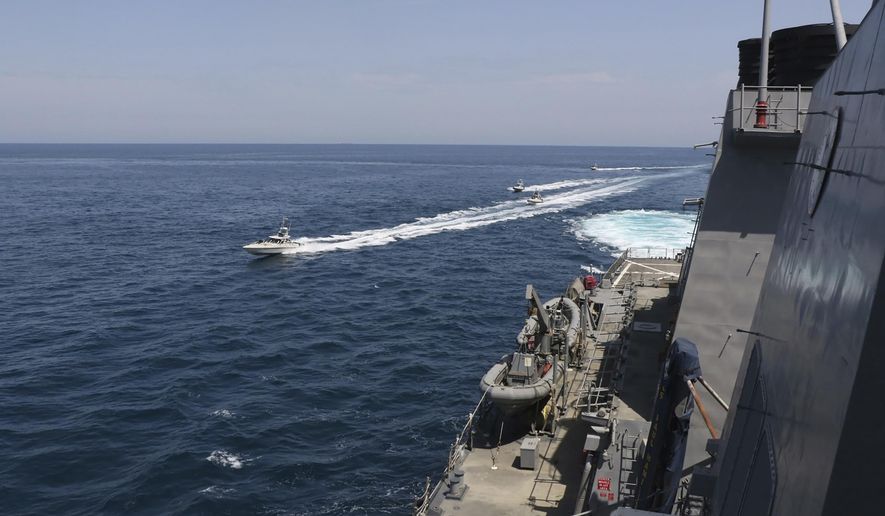A top Iranian official on Monday warned both the U.S. and Israel not to cross “red lines” in the Persian Gulf, the latest skirmish in a heated war of words between Tehran and Washington during the final few weeks of President Trump’s tenure.
Speaking at a press conference, Iranian Foreign Ministry spokesman Saeed Khatibzadeh rejected the Trump administration’s claims that Iran-backed militias were responsible for a recent rocket attack on the U.S. embassy in Baghdad. That attack led Mr. Trump last week to threaten retaliation against Iran if any Americans are harmed.
Mr. Khatibzadeh also railed against recent reports that Israel had dispatched submarines headed for the Persian Gulf. The U.S. Navy, meanwhile, has confirmed that it recently sailed nuclear-powered submarines through the Strait of Hormuz, a strategically vital waterway off Iran’s coast.
“Everyone knows what the Persian Gulf signifies for Iran,” Mr. Khatibzadeh told reporters Monday, as quoted by Agence France-Presse. “Everyone knows the policies [of Tehran] regarding security and national security. … Everyone knows very well how high the risk is raised if the red lines of Iran are crossed.”
He went on to warn the U.S. against any military action and said Iran will not hesitate to defend itself.
“We have not been looking for tension in the region,” Mr. Khatibzadeh said, according to Iran’s Fars News Agency. “We have no doubts about defending the country at all. Everyone has tried and witnessed our responses. We hope those who have a clear mind in Washington decrease tensions.”
After last week’s attack on the American diplomatic complex in Baghdad, Mr. Trump tweeted a photo of three unexploded rockets that were purportedly used in the assault.
“Our embassy in Baghdad got hit Sunday by several rockets. Three rockets failed to launch. Guess where they were from: IRAN. Now we hear chatter of additional attacks against Americans in Iraq,” the president said in his Twitter message. “Some friendly health advice to Iran: If one American is killed, I will hold Iran responsible. Think it over.”
Tensions with Iran have been high throughout the president’s time in office. After a series of escalations by both sides, those tensions reached the boiling point in January when the U.S. launched a missile strike that killed top Iranian Gen. Qassem Soleimani, who was believed to have directed attacks by Iran-backed militias against American forces in the region.
Iran responded with a missile strike on a U.S. air base in Iraq, a move that brought the two countries to the brink of all-out war. Both sides ultimately stood down.
Jan. 3 will mark the one-year anniversary of the Soleimani killing and military officials fear that Iran could choose to launch new attacks in an effort to avenge his death.
Iran also has hurled increasingly hostile threats toward Israel following recent revelations that Mohsen Fakhrizadeh, a top Iranian nuclear scientist, was assassinated near Tehran earlier this year.
Iran has blamed that killing on Israel and the U.S.
• Ben Wolfgang can be reached at bwolfgang@washingtontimes.com.




Please read our comment policy before commenting.